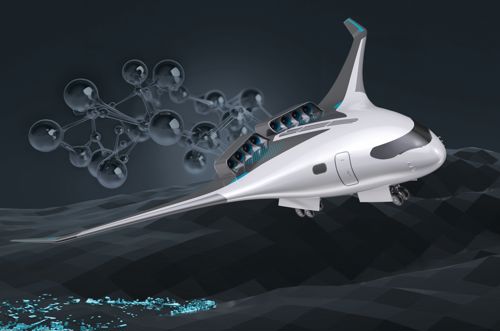Trelleborg partners with Airbus on hydrogen-powered air travel
Trelleborg Sealing Solutions partners with Airbus for hydrogen sealing applications supporting the mission to deliver a hydrogen-powered commercial aircraft by 2035.
Trelleborg is developing safe and reliable seals for the hydrogen propulsion systems of the ZEROe concept aircraft, enabling Airbus to explore a variety of configurations and hydrogen technologies that will shape the future of low-carbon flight.

Torben Anderson, Trelleborg Director Aerospace, says: “We are proud and excited to be working on such an important project. Air travel is responsible for around 2.5% of greenhouse gas emissions, and we are delighted to be helping Airbus deliver its ambition of decarbonizing air travel which matches our goal to lower our carbon emissions in line with the Paris Agreement.
“Hydrogen provides an opportunity to make flying a more sustainable mode of transport but as the smallest molecule typically used in cryogenic conditions it presents significant sealing challenges. Trelleborg is bringing all its experience as a leading global supplier of sealing solutions to the ZEROe project.”
To develop the necessary technology, a high-pressure cryogenic test rig has been designed and built at the Trelleborg Sealing Solutions Bridgwater facility in the UK. As a recognized center of excellence for the well-known metal Wills Rings® and Variseal® spring-energized seals widely used by the oil & gas industry, Bridgwater is a natural location for developing seals for the fluid or gaseous hydrogen that will power future Airbus aircraft.
Peter Bashford, Product Leader at Bridgwater, says: “Initial testing of Wills Rings® demonstrates they provide near 100% sealing of gas in cryogenic conditions. Trials of more flexible polymer materials at low temperatures are continuing, mapping their material properties for the finite element analysis studies required for each design.
“Initial testing has yielded several very promising sealing concepts and we are confident we will deliver a leap forward both in the understanding of cryogenic sealing technology.”
Airbus is developing a variety of low-carbon propulsion technologies and configurations that will shape the future of air travel. Whether the next hydrogen-powered aircraft is powered by electric fuel cell, direct combustion gas turbine or a hybrid combination of both, these concepts all use hydrogen as the base fuel source. While the environmental benefits of using hydrogen as a fuel source are well documented, the technical challenges that need to be overcome to achieve a practical and safe solution are only now becoming apparent.






Comments